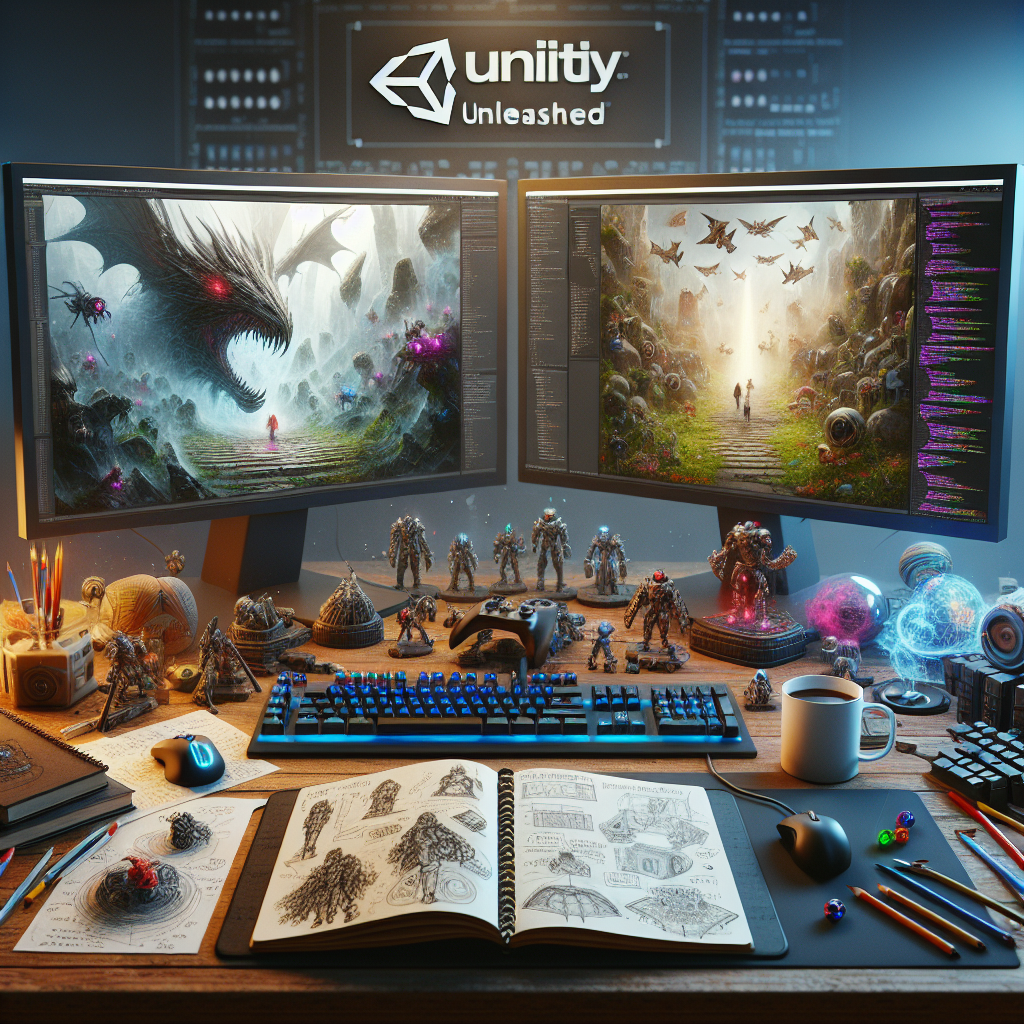Unity Unleashed: Your Ultimate Guide to Building Engaging Games
Whether you’re a seasoned game developer or a beginner eager to dive into the world of game creation, Unity serves as one of the most versatile and powerful game engines available today. With its user-friendly interface, comprehensive asset store, and a supportive community, Unity has established itself as the go-to platform for developing both 2D and 3D games. In this article, we’ll explore the key features of Unity and provide you with tips and resources to unleash your creativity and build engaging games.
Why Choose Unity?
1. Cross-Platform Compatibility
One of the standout features of Unity is its ability to deploy games across multiple platforms. Developers can create games for PC, console, mobile, and even the web, all from a single codebase. This cross-platform capability greatly expands your audience and revenue opportunities.
2. User-Friendly Interface
Unity’s intuitive interface makes it easy to get started. Even those new to coding can quickly learn the basics through a combination of visual scripting and coding in C#. Unity also offers extensive documentation and tutorials, allowing developers to learn at their own pace.
3. Rich Asset Store
Unity’s Asset Store is a treasure trove of resources, featuring thousands of free and paid assets—from 3D models and animations to audio files and scripts. Using these resources can significantly speed up the development process and enhance the quality of your game.
4. Active Community and Learning Resources
Unity boasts a vibrant community of developers who are eager to share their experiences and provide assistance. The official forums, as well as platforms like Stack Overflow and Reddit, are great places to seek help. Additionally, Unity’s learning platform offers courses, live sessions, and tutorials tailored for various skill levels.
Building Engaging Games: Key Strategies
1. Start with a Strong Concept
Every successful game begins with a compelling idea. Start by brainstorming concepts that excite you. Consider the following:
- What gameplay mechanics do you want to explore?
- Who is your target audience?
- What emotions do you want players to experience?
A well-defined concept will serve as a roadmap for your game development process.
2. Focus on Game Mechanics
Game mechanics are the backbone of any game. Consider how players will interact with your game. Mechanics should:
- Be intuitive, allowing for easy learning and mastery.
- Provide challenges that increase engagement without causing frustration.
- Offer varied experiences to maintain interest over time.
3. Prioritize User Experience (UX)
Good user experience is critical to keeping players engaged. This includes:
- Clear tutorials that guide players through the game.
- Feedback systems that reward progress and make the game feel responsive.
- An accessible interface that avoids clutter and confusion.
4. Utilize Visual Storytelling
The visual elements of your game can narrate a story more powerfully than any dialogue. Invest time in creating visually appealing environments, character designs, and animations that resonate with your game’s theme. Remember that compelling visuals can captivate players and draw them into your game world.
5. **Iterate and Test
Game development is an iterative process. Don’t hesitate to test your game early and often. Playtesting can reveal gameplay issues and areas for improvement that you might not have noticed. Gather feedback from a diverse group of players to see how different demographics interact with your game.
Resources to Consider
1. Unity Learn
Unity offers a wealth of resources on its own platform called Unity Learn, which includes tutorials, courses, and projects that range from beginner to advanced levels.
2. YouTube Tutorials
Channels like Brackeys (now archived), Unity’s official channel, and Gamedev.tv provide practical, hands-on tutorials covering various aspects of game development in Unity.
3. Books
Books such as “Unity in Action” and “Learning C# by Developing Games with Unity” can provide in-depth knowledge and practical examples for those who prefer structured learning.
4. Online Communities
Joining online communities such as the Unity Discord server, Reddit’s r/Unity3D, or the Unity forum can foster connections with fellow developers, offering a space to share knowledge, get feedback, and collaborate.
Conclusion
Unity is more than just a game engine; it is a gateway to creating immersive, engaging experiences that captivate audiences of all ages. By leveraging its robust features and resources, you can transform your game ideas into reality. Remember to focus on developing strong game mechanics, prioritize user experience, and continuously iterate on your projects. With passion, practice, and patience, you can unleash your creativity and embark on a rewarding journey in game development with Unity. Happy developing!




